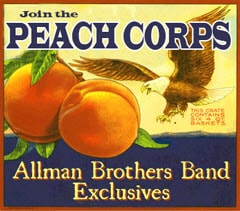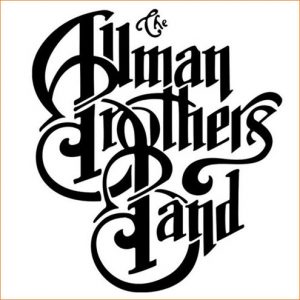By: Sean McDevitt
For: Gibson Backstage Pass
At the recent Crossroads Guitar Festival in suburban Chicago, phenom guitarist Derek Trucks floored the sold-out audience with stinging slide runs on his ubiquitous Gibson Custom Shop SG ’61 Reissue, which bears autographs from a number of artists with whom he’s crossed paths during his brief but booming career—among them Hubert Sumlin, Otis Rush, Eric Clapton, Johnny Winter, and the late Little Milton.
Trucks—a burgeoning legend who, at 28, has already gained renown for his work with the Allman Brothers and his own band—set the mood Saturday afternoon with Nusrat Fateh Ali Khan’s “Sahib Teri Bandi” and Nina Simone’s “Wish I Knew” before bringing out wife and blues guitarist Susan Tedeschi, who paid tribute to the Windy City’s rich blues tradition with Junior Wells’ “Little by Little.” Trucks then acknowledged Eric Clapton, host of Crossroads, with a rousing reading of Derek and the Dominos’ “Anyday,” and brought the resurgent Johnny Winter to the stage to serve up a propulsive cut of Bob Dylan’s “Highway 61.”
Ten years have passed since Derek Trucks got his explosive start as one of the world’s most famous living guitarists. When The Derek Trucks Band was released in 1997, Trucks was just four months removed from his 18th birthday. That album introduced the world to a fresh face with an old soul, a young master of the bottleneck guitar whose deep blues influences were complemented by his affinity for classic jazz.
Fast-forward a decade—and then take a look back. One can’t help but marvel at all that’s happened for Trucks: Since his debut, he released another five albums with the Derek Trucks Band and joined the Allman Brothers, a gig he maintains to this day. He also married Tedeschi, with whom he has two children, and crisscrossed the world as a member of Eric Clapton’s touring band.
Loping into the Crossroads press room after the Derek Trucks Band finishes its set, Trucks takes a seat and smiles beatifically. “It’s been a busy few years,” he says. “The beauty of it is that it doesn’t feel any different. It’s nice that there’s a little more acceptance in certain realms, and that we don’t have to spend the first half-hour of a show convincing people that we belong there on stage. Running as much and as hard as we do, I don’t really have a chance to step back and see how things have changed. I feel like I’m working and doing what I’m supposed to be doing.”
Capping off Trucks’ evening was Clapton’s unforgettable set, a seemingly endless array of classic tunes (several of them quite memorably featuring Steve Winwood) that undeniably marked the festival’s creative and emotional apex. “There are musical lessons that you learn from Eric that are hard to quantify,” Trucks says of his time traveling the world with Clapton. “But for me, his longevity is the biggest part of it. He’s a guy who has had, like, six major careers [laughs]. It’s unbelievable. He’s been through the fire, he’s made it through, and he’s here to tell a tale that’s pretty impressive. He’s a really focused guy and a really generous guy—letting guys like me and Doyle [Bramhall] play guitar solos at an Eric Clapton show—he doesn’t have to do that.”
If there’s anything unsettling about all that Trucks has already accomplished, it’s that one can’t help but wonder: With the possible exception of a massive commercial album success, what else is there? Trucks says he’ll continue to seek satisfaction in his own creativity, and he’s already got his next projects in mind.
“There are so many different things that I want to do personally, with the band, and with Susan,” he explains. “I’d like to do a great record with her at some point, something in the spirit of Delaney and Bonnie. I think that would be great to do when things settle down and we have time to write tunes and do it. And in the immediate future, I’d love to do a real broken-down blues record. That’s something that we’ve kind of hinted at but never really done.”
One defining characteristic of Trucks’ career has been his insatiable appetite to explore different sounds and genres, and then incorporate them into his own music. He once even went through a period of nearly four years where he purposely avoided listening to guitarists, instead becoming immersed in horn players. The end result was finding inspiration in saxophonists like Ornette Coleman, Wayne Shorter, and John Coltrane, and trumpeters such as Lee Morgan and Clifford Brown. Deciding what songs he plays or records is its own journey, he says.
“It’s all music that somehow strikes me, whether it’s a Western classical tune or straight-ahead jazz,” Trucks says. “There’s a lot of pretty esoteric stuff played on the bus. Certain things strike you. I think the common thread is that there’s a certain kind of purity in all of it, a real directness. It’s not overproduced music, it’s not pop music, and it’s not made to pull the wool over anyone’s eyes. It’s music that comes from a very honest place.”



